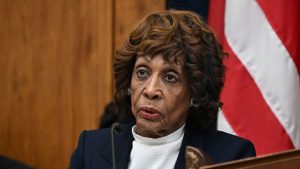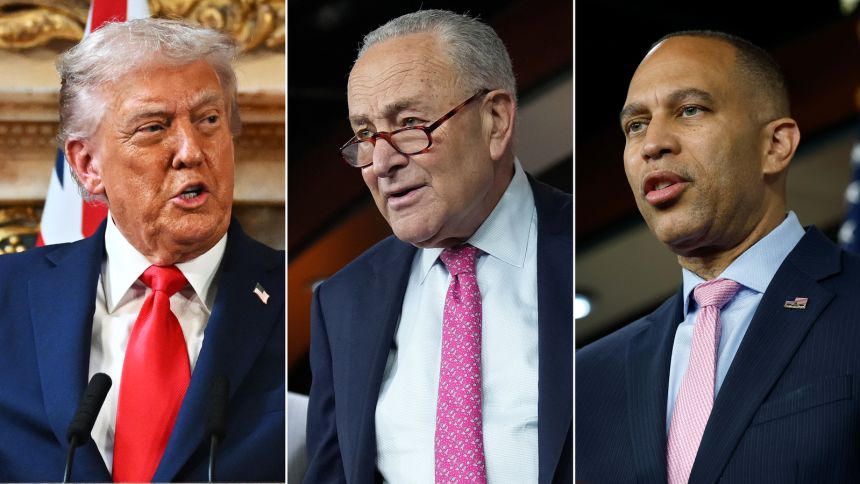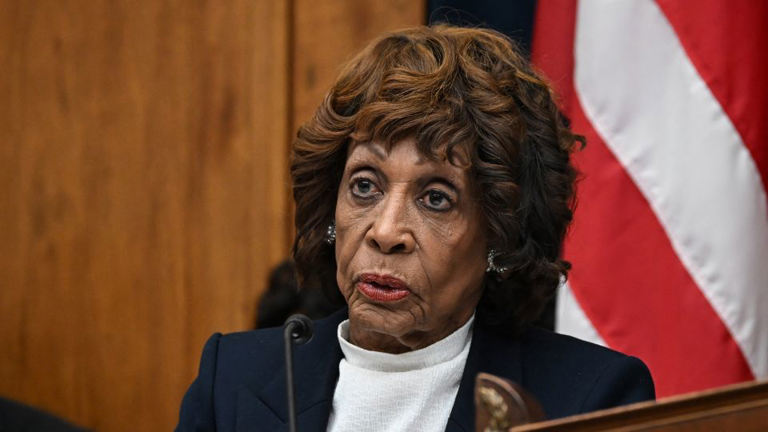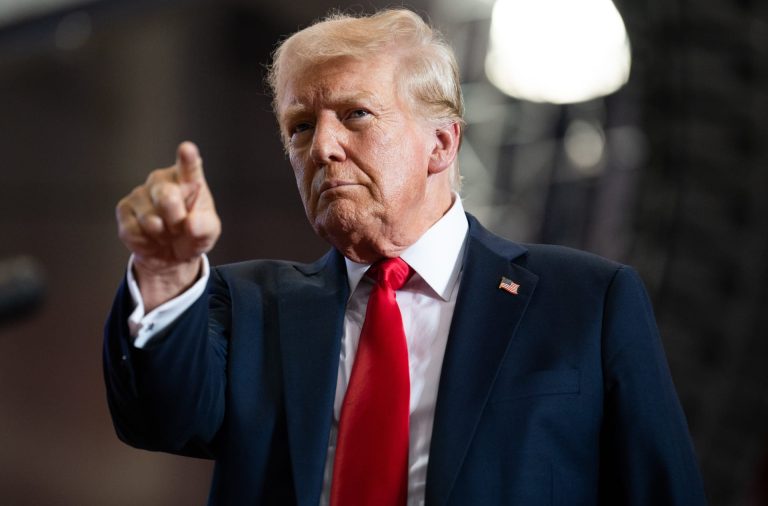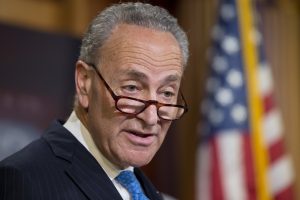The United States Senate has confirmed billionaire investment banker Warren Stephens as the next ambassador to Britain in a 59-39 vote, solidifying President Donald Trump’s choice for one of the most visible and prestigious posts in American diplomacy. Stephens, a prominent figure in finance and politics, now assumes a position that blends diplomacy, economic strategy, and high-profile representation, tasked with advancing U.S. interests in London and strengthening the transatlantic relationship at a critical time.
Stephens is widely recognized for his extensive career in investment banking as the chairman, president, and CEO of Stephens Inc., a privately held financial services firm with a history of corporate advisory and capital market operations. Beyond his professional accomplishments, he has been a long-time contributor to Republican candidates and conservative causes, including Trump, supporting campaigns and party initiatives with both substantial financial donations and strategic involvement. His confirmation is emblematic of a tradition in U.S. politics where major donors and influential business leaders are often selected for key ambassadorial roles, particularly in countries of strategic importance.
The Prestige of the London Ambassadorship
The position of U.S. ambassador to Britain has historically been regarded as one of the most prestigious appointments in American foreign service. London serves as a central hub for global finance, diplomacy, and cultural influence, and the ambassador’s role requires the careful balancing of political, economic, and strategic priorities. The office is expected to foster strong ties with the British government while advancing U.S. interests across a wide range of sectors, from trade and investment to security cooperation and cultural diplomacy.
Stephens’ appointment follows a historical pattern in which presidents have often nominated prominent donors, business executives, and figures with substantial financial expertise to represent the United States in London. Previous appointees, similarly drawn from influential business circles, have leveraged their networks and strategic insight to strengthen bilateral ties while advancing American priorities abroad. Observers note that such appointments reflect the administration’s belief that experience in finance and high-level management complements the traditional diplomatic skill set, particularly in posts where economic engagement is central to policy objectives.
Balancing Diplomacy and Economics
Stephens assumes his new responsibilities amid ongoing discussions surrounding transatlantic economic and trade relations. The ambassador plays a critical role in facilitating dialogue between the U.S. and British governments, advising on policy matters, and supporting initiatives that influence trade agreements, regulatory standards, and investment flows. Economic diplomacy has become an increasingly central element of the London ambassadorship, as both nations navigate complex international markets, trade negotiations, and evolving financial frameworks.
The U.S.-U.K. relationship remains vital not only for historical and cultural ties but also for strategic collaboration on economic and security issues. The ambassador’s office functions as a bridge between governments, private sector actors, and international organizations, providing insight into local developments while ensuring that U.S. objectives are advanced effectively. Stephens’ experience in investment banking, corporate strategy, and political engagement equips him to manage these multifaceted responsibilities, combining negotiation acumen with a nuanced understanding of global finance.
Political Significance of the Confirmation
The 59-39 Senate vote in favor of Stephens underscores both the partisan dynamics of ambassadorial appointments and the political weight of Trump’s influence within the Republican Party. While some opposition voices raised concerns about appointing a major donor to such a significant diplomatic role, supporters emphasized Stephens’ professional qualifications, strategic insight, and understanding of global financial markets.
Appointments like Stephens’ highlight the intersection of politics, business, and diplomacy in contemporary U.S. governance. Presidents have historically relied on trusted allies and influential supporters to occupy positions that require both political loyalty and the capacity to represent American interests effectively abroad. The Senate’s confirmation vote reflects both confidence in Stephens’ abilities and the broader recognition of his standing within political and business circles.
Stephens’ Professional and Philanthropic Background
Warren Stephens’ career spans decades in the investment and financial services sectors. Under his leadership, Stephens Inc. has developed a robust presence in corporate advisory, investment banking, and capital markets, serving clients across industries ranging from energy and manufacturing to technology and financial services. The firm’s private ownership and long-standing track record have allowed it to maintain flexibility in strategy and operations, positioning it as a trusted partner in complex financial transactions.
In addition to his professional accomplishments, Stephens has been actively involved in philanthropic endeavors, supporting educational initiatives, community development, and public service programs. His contributions to Republican campaigns further highlight his engagement in shaping policy and supporting candidates aligned with his values. This dual combination of business acumen and political involvement positions him as a high-profile nominee capable of representing U.S. interests on a global stage while navigating the intricacies of international relations.
Transatlantic Relations and Strategic Priorities
Stephens’ ambassadorship comes at a time when the U.S.-U.K. relationship requires both steady leadership and strategic vision. Economic negotiations, trade arrangements, and collaborative initiatives in areas such as security, energy, and technology are central to bilateral discussions. The ambassador is responsible for ensuring that American interests are represented across these areas while fostering trust, collaboration, and mutual understanding between the two nations.
Trade remains a significant area of focus. Both governments are interested in expanding market access, reducing barriers to investment, and strengthening the regulatory environment to promote economic growth. In this context, Stephens’ experience in financial markets and corporate strategy provides him with a practical perspective on how to approach complex negotiations, balance competing interests, and identify opportunities for mutually beneficial outcomes.
Security and defense cooperation also remain key pillars of the U.S.-U.K. relationship. The ambassador’s role extends beyond economic diplomacy, encompassing discussions around intelligence sharing, joint military initiatives, and coordination on global security challenges. By leveraging his professional networks and political insight, Stephens is expected to contribute to sustaining the long-standing alliance between the two nations while addressing emerging threats and priorities.
Challenges Ahead
While Stephens brings a wealth of experience to the role, he will face several challenges in navigating the ambassadorial position. High-profile diplomatic posts like London require a combination of political diplomacy, cultural sensitivity, and strategic foresight. Balancing U.S. domestic priorities with the expectations of the British government and civil society will be essential to maintaining a productive working relationship.
The evolving economic landscape, global trade tensions, and geopolitical uncertainties add complexity to the ambassadorship. Effective communication with stakeholders on both sides of the Atlantic, as well as strategic engagement with private sector leaders, think tanks, and policymakers, will be critical to ensuring that U.S. interests are advanced while sustaining goodwill and trust.
Additionally, public perception plays a crucial role. As a high-profile businessman and political donor, Stephens must navigate scrutiny regarding his appointment, demonstrating both professional competence and impartial commitment to representing the United States. Success in this role will hinge on his ability to integrate financial expertise with diplomatic acumen, fostering collaboration while maintaining credibility among diverse audiences.
Expectations and Opportunities
Stephens’ confirmation has generated anticipation among political analysts, diplomats, and financial leaders alike. His professional experience, combined with political alignment and public visibility, positions him to serve as a bridge between government, business, and civil society. Analysts note that the ambassador’s office can influence policy decisions, support trade negotiations, and contribute to broader strategic initiatives that strengthen the U.S.-U.K. partnership.
The 59-39 vote also reflects the ongoing significance of Senate confirmation processes in shaping the diplomatic corps. While partisan divisions are evident, the successful confirmation signals recognition of the nominee’s qualifications and trust in his ability to execute the responsibilities of a critical ambassadorial role. Stephens’ tenure may therefore serve as both a case study in political appointments and an example of how professional experience can intersect with high-level diplomacy.
A Broader Perspective
Appointments like Stephens’ illustrate the broader dynamics of contemporary diplomacy, where political loyalty, professional expertise, and strategic influence converge. In addition to formal diplomatic duties, ambassadors increasingly operate as economic strategists, cultural liaisons, and political envoys, navigating complex international landscapes while advocating for national interests. Stephens’ blend of financial expertise, philanthropic engagement, and political involvement exemplifies this evolving role.
Observers emphasize that the U.S.-U.K. relationship continues to be a cornerstone of American foreign policy. The ambassador plays a central role in sustaining this partnership, engaging with British officials on policy, trade, and security, and representing U.S. positions on global issues. Effective diplomacy in London has implications far beyond bilateral ties, influencing economic stability, regional security, and transatlantic cooperation more broadly.
Looking Forward
As Stephens prepares to assume his new responsibilities, expectations are high for his ability to navigate the multifaceted nature of the ambassadorship. His confirmation represents a blending of business insight, political alignment, and diplomatic responsibility, signaling confidence in his capacity to advance American interests while strengthening one of the United States’ most critical international partnerships.
The 59-39 Senate vote highlights both political support and the contested nature of ambassadorial appointments in a polarized political environment. Stephens’ success will depend on his ability to manage these dynamics, demonstrating leadership, strategic thinking, and a commitment to the broader mission of American diplomacy.
With his professional and political background, Stephens is positioned to make a significant impact, shaping U.S.-U.K. relations, supporting economic and strategic collaboration, and reinforcing the United States’ global presence. The role will require careful balancing of priorities, sensitivity to both domestic and international concerns, and the capacity to represent American values while advancing practical objectives abroad.
In assuming the London post, Stephens becomes a central figure in one of the most influential bilateral relationships in the world, bridging the spheres of politics, finance, and diplomacy. His appointment underscores the importance of strategic leadership in ambassadorial roles and reflects the Trump administration’s approach to selecting nominees who combine professional expertise with political alignment.

Emily Johnson is a critically acclaimed essayist and novelist known for her thought-provoking works centered on feminism, women’s rights, and modern relationships. Born and raised in Portland, Oregon, Emily grew up with a deep love of books, often spending her afternoons at her local library. She went on to study literature and gender studies at UCLA, where she became deeply involved in activism and began publishing essays in campus journals. Her debut essay collection, Voices Unbound, struck a chord with readers nationwide for its fearless exploration of gender dynamics, identity, and the challenges faced by women in contemporary society. Emily later transitioned into fiction, writing novels that balance compelling storytelling with social commentary. Her protagonists are often strong, multidimensional women navigating love, ambition, and the struggles of everyday life, making her a favorite among readers who crave authentic, relatable narratives. Critics praise her ability to merge personal intimacy with universal themes. Off the page, Emily is an advocate for women in publishing, leading workshops that encourage young female writers to embrace their voices. She lives in Seattle with her partner and two rescue cats, where she continues to write, teach, and inspire a new generation of storytellers.


